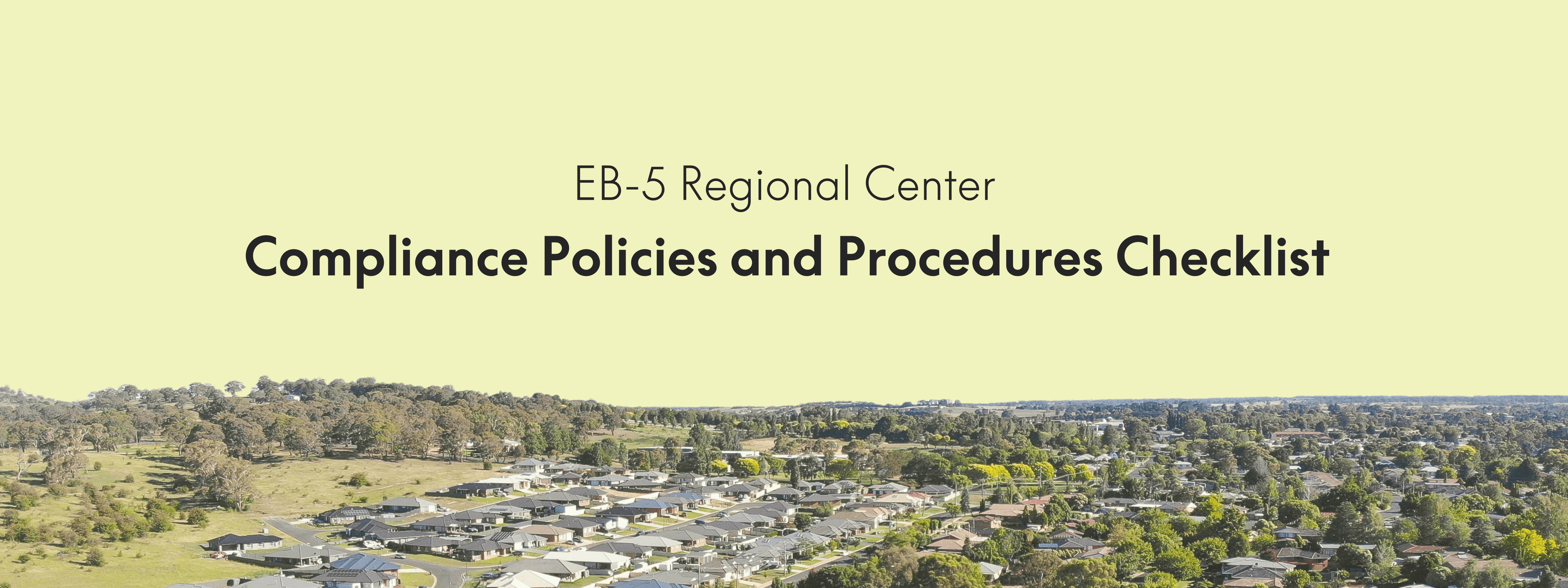A settlement between the government and six regional centers along with IIUSA is now officially approved; the terms clarify how regional centers need to conform to the Reform and Integrity Act. Regional centers can sponsor new projects but need to file a Form I-956 by December 29, 2022. New regional center investors can file right away as long as the regional center filed a Form I-956F; USCIS now accepts lockbox notices and proof of payment as evidence of such filing.
Background of the case
After the EB-5 Reform and Integrity Act of 2022 was enacted, USCIS essentially shut down the Regional Center Program again by announcing that each of the over 600 formerly approved regional centers would be deauthorized until each regional center received approval on their Form I-956, Application for Regional Center Designation. This prevented EB-5 investors from filing new I-526E petitions.
Two major lawsuits, involving six regional centers as well as the industry advocacy group IIUSA, were filed against the Immigration Service challenging this deauthorization, arguing that USCIS violated the Administrative Procedure Act.
On June 24, 2022, the court ordered a preliminary injunction saying USCIS was “almost certainly in legal error.” This injunction allowed previously approved regional centers to function as approved again, until a final court order or settlement.
However, when issuing the injunction the court also declared USCIS could do “whatever is reasonably necessary to ensure that the existing regional centers comply with the Integrity Act.”
Terms of settlement
The agreement between the six regional centers and IIUSA (the plaintiffs), and USCIS, the USCIS Director, and Department of Homeland Security (the defendants) has several major implications for the program, and collectively can be seen as a victory as it allows EB-5 to return to normal operations.
Regional centers are back in business but must file an I-956 by Dec. 26 in order to sponsor new projects or investors
Regional centers in “good standing” upon enactment of the Integrity Act continue to retain their approved standing and are thus able to operate once again.
However, regional centers that wish to sponsor new projects or investors after the RIA must file an I-956, as an amendment to its initial designation notice, by December 29, 2022, and pay the associated fee of $17,795.
Regional Centers who submitted a Form I-956 prior to the effective date do not need to submit another Form I-956.
Previously approved regional centers and investors in projects sponsored by previously approved regional centers do not need to wait for I-956 approval in order to file and receive adjudication on form.
Evidence of RIA compliance is still required
It is important to note that while the settlement means USCIS was wrong to demand immediate recertification of regional centers, compliance with the RIA is still required with an I-956 filing: “Evidence regarding policies and procedures to ensure compliance with new program requirement is still required.”
Thus, any previously approved regional center that is sponsoring any new projects or investors since the enactment of the RIA must comply with the RIA.
If a regional center had filed an I-956 prior to the settlement, it may interfile any documents providing evidence of such compliance.
New project applications
Previously approved regional centers can immediately file a new project application with a Form I-956F.
Previously approved regional centers must file an I-956F for any previously approved project if there are any new investors investing in the project who are filing an I-526E after the enactment of the Integrity Act.
USCIS may ask for additional clarification (Request For Evidence), for any previously approved project regarding any new requirements of the RIA.
Changes to business plan, or any other element of a previously approved exemplar, that are made to comply with the RIA do not constitute a material change.
New investors can now file in new projects
New regional center investors can essentially file right away now so long as their regional center has filed an I-956F for project approval. Investors no longer have to wait for a receipt of the I-956F before filing.
I-956F receipts and alternatives
No receipt of Form I-956F is required for investor petitions to be filed if an I-956F receipt is not issued with 10 days of delivery of filing. Alternative evidence of filing will be accepted to allow investors to file their petitions:
USCIS will accept a lockbox notice along with copy of at least the first six pages of the filed Form I-956F
If no such receipt or notice is given within 10 days, USCIS will accept proof of a cashed check or credit-card charge in order to provide a receipt number for the I-956F
USCIS will provide electronic copy of receipt notices fro all Form I-956F applications with 16 weeks of the effective date of the settlement, September 1, 2022.
Investors who filed after the injunction but without an I-956F receipt number
If prior to the effective date of the settlement but after the preliminary injunction an investor properly field a Form I-526 without a Form I-956F receipt number, that investor may file a new Form I-526E with a receipt notice for the I956F; that investor will receive a refund for the I-526 filing.
If during that time period an investor properly filed a Form I-526E, that investor can interfile the I-956F receipt notice.
In either case, the investor will keep his or her priority date.
Regional centers that do not file an I-956 and investors with pre-RIA petitions
If a regional center chooses not to sponsor any new projects or investors it is not mandated to file an I-956 for authorization or I-956F for previously approved projects.
For investors who filed with such previously approved projects, their pending I-526 and I-829 petitions will continue to be processed by USCIS and can still be approved.
However, such investors are still subject to both the requirements and protections offered by the RIA where applicable.
Forms and settlement will be reviewed and may be revised
By Dec. 1, 2022, USCIS will amend any forms and instructions to adhere to this settlement. The plaintiffs in the court case have the right to comment on any final forms posted to the Federal Register to request that the forms conform to the settlement.
For at least two years, and at least once per quarter, the plaintiffs will have a two-hour discussion with the defendants about the implementation of the settlement.
This will provide both sides with the opportunity to address any unforeseen issues and for both parties to have a good-faith dialogue about whether the any revisions to the settlement are needed.
See the settlement





